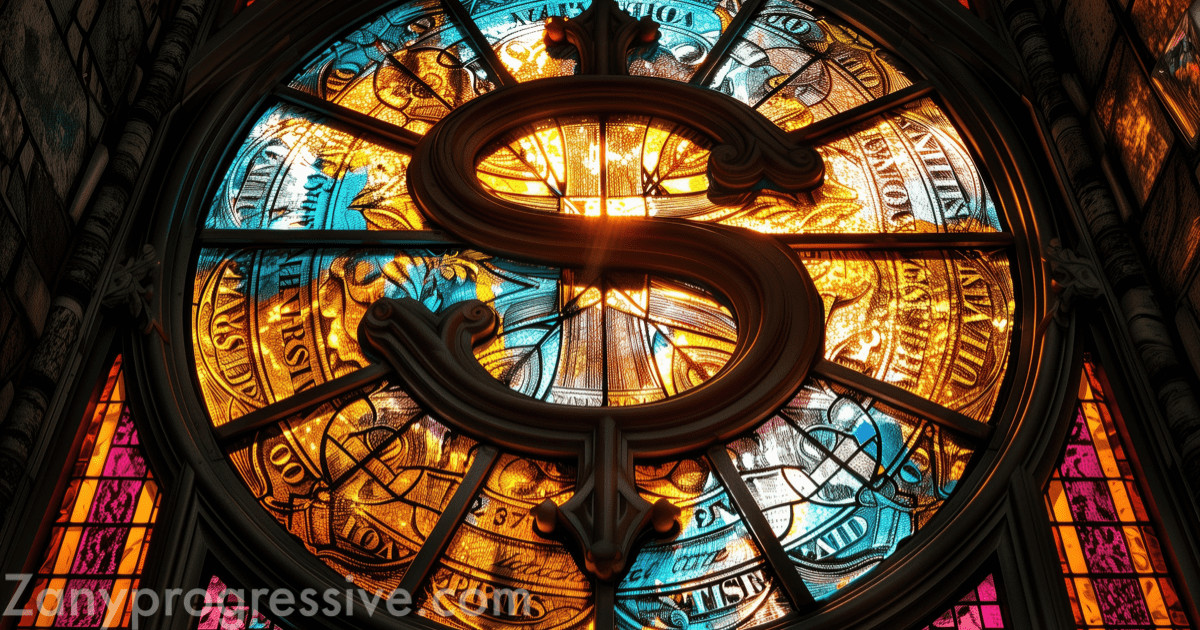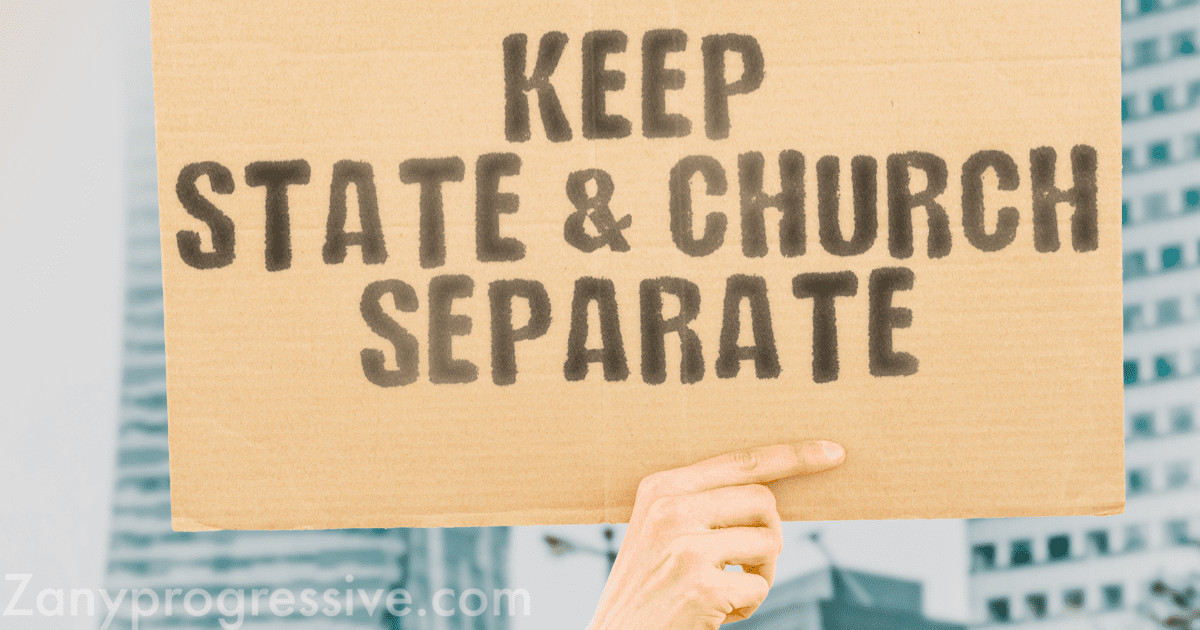Imagine trying to sit through an office meeting where someone insists on quoting Shakespeare before every agenda item—no, not the cool lines from Hamlet, but the more obscure, less relevant ones. You’d probably wonder why anyone would cling so desperately to a 16th-century playwright’s words in a world of modern communication tools. Now, swap out Shakespeare with references to God in our government, and you’ve got the modern conundrum of church and state.
Is the Almighty on our payroll?
It’s 2024, and yet “In God we trust” still adorns our currency, and “one nation under God” is etched into our Pledge of Allegiance. These are remnants of a time when the line between church and state was as blurred as the vision of someone accidentally grabbing the wrong pair of glasses. But let’s face it: Not everyone in this melting pot of cultures and beliefs shares the same faith—or any faith at all. So, should Uncle Sam still be flaunting God like an outdated celebrity endorsement?

The numbers don’t lie (but they sure do complicate things)
According to a 2021 Pew Research Center survey, the percentage of Americans identifying as Christians has dropped from 75% in 2011 to 63% in 2021. Meanwhile, the “nones” (those identifying as atheists, agnostics, or nothing in particular) have risen to nearly 30%. This shift in religious identity raises the question: Why is our government still clinging to a one-size-fits-all faith model that increasingly doesn’t fit?
Further, a 2022 Gallup poll showed that only 81% of Americans now believe in God, down from 92% in 2011. Yet, the government continues to invoke God’s name like a Hail Mary pass in a political football game. The issue isn’t just about faith; it’s about representation. Are we, as a society, okay with the government playing favorites with religion when a growing chunk of the population is looking for a more secular playing field?
When faith becomes a ‘PR’ problem

The reality is that government endorsement of religion—or its appearance—sends a message. It suggests that there is a “right” belief system endorsed by the state, leaving those who fall outside of that system feeling like the odd ones out at a family reunion. It’s like the government is trying to be the cool parent who wants to be friends with everyone but keeps playing the same old tune on the jukebox.
Nowhere is this tension more evident than in our schools during the morning Pledge of Allegiance. The words “under God” have been controversial since they were added in 1954. For students from diverse religious backgrounds—or those who identify as non-religious—this daily ritual can feel like an imposition of a belief system they don’t subscribe to. For some, it’s a minor inconvenience; for others, it’s a daily reminder that their beliefs—or lack thereof—aren’t quite “American” enough.
Balancing tradition and inclusion
Advocates for keeping religious references in government symbols argue that these traditions are integral to the nation’s identity. They believe these references serve as a reminder of the values upon which the country was founded. Some see the phrase “In God we trust” on currency and “under God” in the Pledge of Allegiance as unifying forces, providing common ground in an increasingly divided society.
On the flip side, the inclusion of God in government symbols and pledges can alienate those who don’t share the same religious beliefs. As the number of Americans identifying as non-religious grows, so too does the number of people who feel excluded by these references. In a country that prides itself on freedom of religion—or freedom from religion—should the government really be endorsing a particular religious viewpoint?

Kennedy v. Bremerton School District
One recent case underscoring these tensions is Kennedy v. Bremerton School District (2022). This case involved a high school football coach dismissed for praying on the field after games. The Supreme Court ruled in favor of the coach, holding that his prayer was protected under the First Amendment’s Free Speech and Free Exercise Clauses. The case reflects the delicate balance between allowing individual religious expression and maintaining the secular nature of public institutions like schools. It shows how the line between personal faith and public endorsement of religion can become blurred, leading to complex legal and social challenges.
Rebranding for the modern age
So, should the government support the separation of church and state by removing references to God? It’s a question worth pondering. As society evolves, it’s time to rebrand and update the government’s messaging to reflect the reality of the 21st century. It’s not about turning away from faith; it’s about shifting toward a future where everyone can feel like they belong regardless of their beliefs.
In the end, the government’s job isn’t to save our souls—it’s to serve its citizens. All of them. And that, my friends, is the gospel truth.
Because, in the words of a wise man (well, it’s ‘yours truly’)- “If God wanted His name on our money, He’d have opened a bank.”




